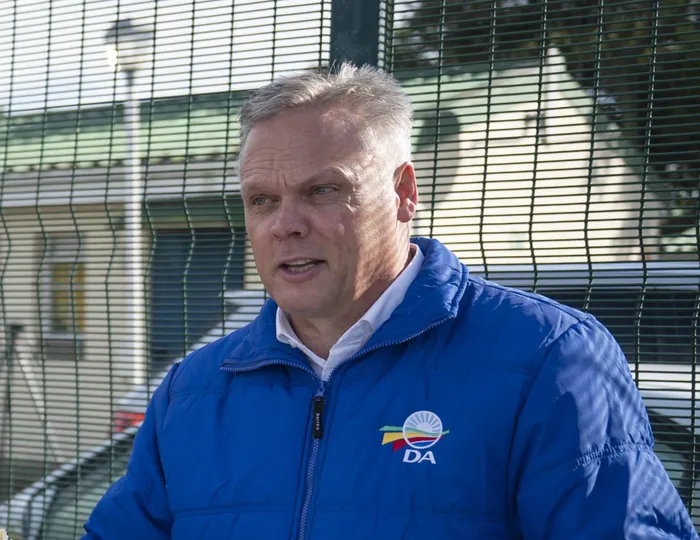NSPCA expresses concern over new Environment Minister Aucamp's ties to ‘captive wildlife industry’

Willie Aucamp is the new Minister of Forestry, Fisheries and the Environment.
Image: Armand Hough / Independent Newspapers
The National Council of SPCAs (NSPCA) says it is committed to ensuring that crucial wildlife matters are handled lawfully, ethically, and with fairness.
It was commenting after President Cyril Ramaphosa confirmed that DA MP Willie Aucamp has replaced Dion George as Minister of Forestry, Fisheries and the Environment (DFFE).
DA leader and Agriculture Minister John Steenhuisen requested George’s removal.
Explaining the decision in a statement Steenhuisen said: “Collegiality is crucial. Our progress requires steadfast teamwork within and outside government as we strive to deliver better governance and improvements to people’s lives. It is also important for every public official to work to an agreed agenda.”
A few days ago the NSPCA had written to the president to raise their concerns about the then rumoured appointment of Aucamp in the role.
In their letter, the NSPCA said it wanted to raise its concern with the proposed appointment due to “numerous publicly available news reports that have linked Mr Aucamp to activities and events involving the captive wildlife industry”.
“Of further concern, is that publicly available information reflects Mr Aucamp’s attendance of industry-linked events, such as the industries of lion breeding, other captive wildlife facilities, and the very organisation litigating against the DFFE concerning the setting of a lion bone export quota,” the letter said.
In their statement on Thursday, the NSPCA said it had noted with profound disappointment and concern, how organisations promoting captive wildlife breeding and trophy hunting have openly celebrated Aucamp's appointment.
“These sentiments stand in stark contrast to the growing global rejection of such practices, and to South Africa’s hard-won progress toward ending the exploitation of captive-bred wildlife.”
It added that the DFFE’s leadership has far-reaching implications, not only for conservation and biodiversity, but also for how South Africa is viewed internationally in its handling of wildlife trade, trafficking, and “sustainable use.”
“We stand resolute in our duty, for the animals who have no voice, and for the South Africans who still believe that the well-being of wildlife should be at the forefront of our minds,” the NSPCA said.